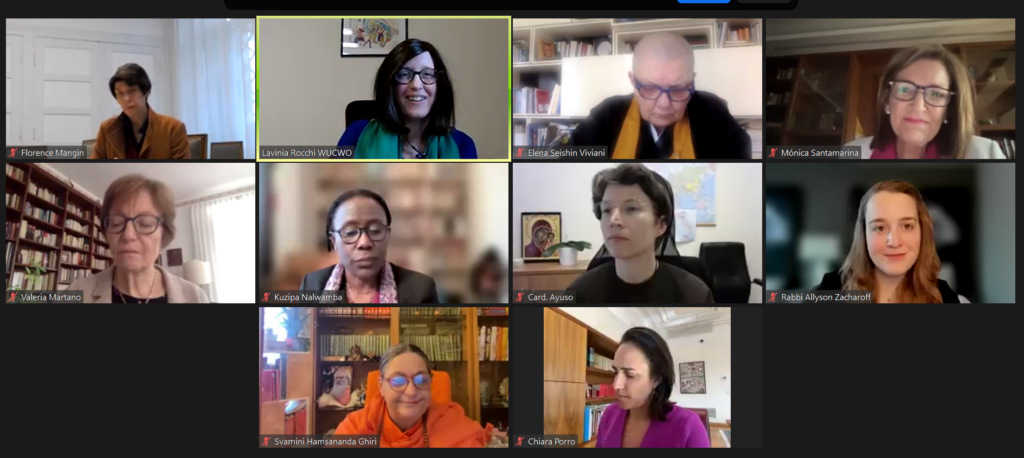Rabbi Zacharoff shares a Jewish perspective at international conference around Women’s Day
On March 5, 2024 Rabbi Allyson Zacharoff (Cohort VI, USA) was among the speakers invited to present at the online event “Women Sowing Seeds of Peace and Cultivating Encounter” organized by the World Union of Catholic Women’s Organizations in collaboration with the Dicastery for Interreligious Dialogue and with the sponsorship of some Embassies to the Holy See.
Rabbi Zacharoff spoke about “Interreligious Dialogue and Mediation among University Students” starting from her experience gathered in different academic institutions – such as the John Paul II Center for Interreligious Dialogue for the Russell Berrie Fellowship – as well as her job assignments over the last years.
After her presentation at the conference – that you can listen and watch here – Rabbi Zacharoff summed up her thought for us. Talking about the specific Jewish experience, Rabbi Zacharoff explains: “I have also seen how often in college spaces, Jewish students are actually key leaders in interfaith dialogue. There are many historic reasons for this, but one I will lift up is a shared value in my experiences of the Jewish community, which is hope.” She then continues: “ We have hope that by engaging with our neighbors, we can combat antisemitic stereotypes and that by sharing our rituals, people will make less assumptions and feel less scared by what they do not know. And we hope that by knowing us, our peers will be able to better stand by us in moments of intense antisemitism.”
Over the past years, Rabbi Zacharoff has run many JPII Leader projects thanks to the support of the JPII Center that you can find here. The latest one which received a high visibility and which made her even more known in the field of women leaders’ action, was the online successful conference “Kindle and Connect: An Interfaith Gathering of Women Leaders”.
On March 5, Zacharoff concluded her speech sharing some important thoughts about the interfaith life on campuses after the tragic events of October 7. “All too often, it is either seen as you are ALL pro Israel or you are ALL pro Palestine. Often I see this particularly among supporters of Palestine, with more nuance among those who also care for Israel. But I hope instead that true people of faith can be pro HUMANITY. Pro understanding. Pro hope for a better future for all–not one in which an entire people must be driven out or destroyed, but instead a future where caring for one life means caring for all.”
With a heavy heart Zacharoff shared how, for example “some Jews have chosen to take down their mezuzot, the markers on our doorframes, for example out of fear of retribution or violence”. However she ended with a strong statement: “And yet. And yet we hope. And yet we are called as Jews to partner with G-d in moving our world toward olam ha ba, the world to come, when peace and harmony will truly and finally reign. The foundation of interfaith dialogue on college campuses over the last 50 years, something in which women have certainly played a major role, has us set up in a way that means not all will be lost. But the work of the last decades has set us up with a foundation that one day–one day–I hope we will be able to resume being in conversation around our beautiful, unique, meaningful differences.”
Thank you Rabbi Zacharoff and let’s continue supporting each other’s good work, even more in these times of crisis.

